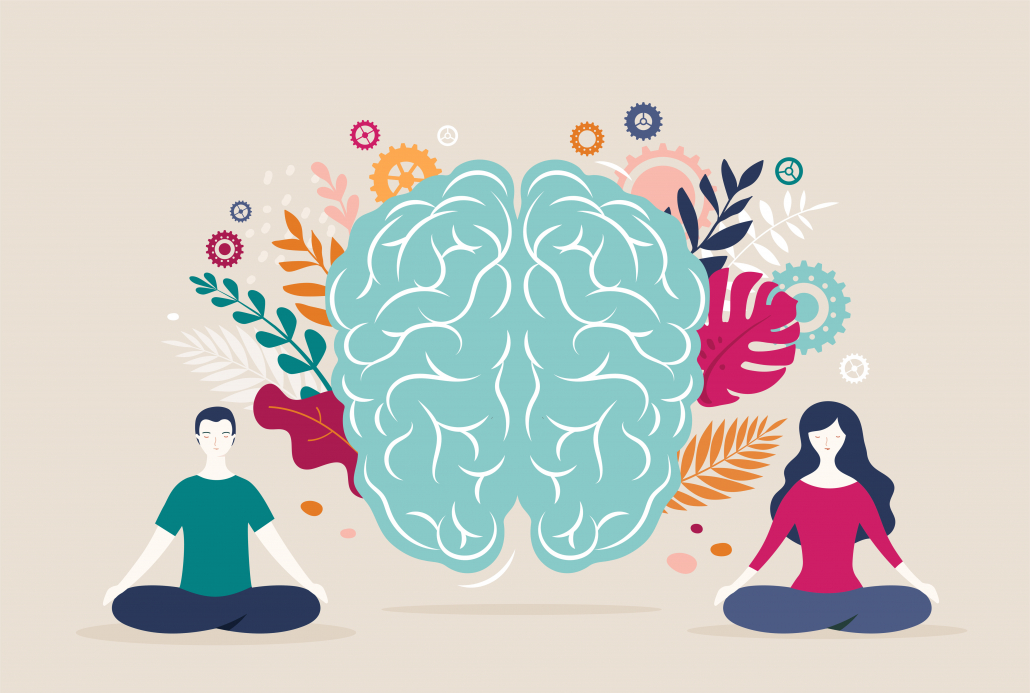We include products in articles we think are useful for our readers. If you buy products or services through links on our website, we may earn a small commission.
Loving Kindness Meditation: What it is and How to Do it

Table of Contents
Loving Kindness Meditation (LKM) is a technique for self-care with roots in ancient Buddhist philosophy.
In recent decades Loving Kindness Meditation, also known as Mettā, has been studied and adopted as a tool for physical and mental self-healing, and greater wellbeing.
Loving Kindness Meditation is used by millions of people everyday to reduce stress, improve relationships, increase self-acceptance and more.
Though the name of this technique might imply softness and ease, LKM is a rigorous practice that challenges you to find compassion for yourself and others.
Fast Facts about Loving Kindness Meditation
- Doing loving kindness generally consists of silently repeating phrases expressing kindness and compassion
- These phrases are often directed at internal visualizations of the people you are wishing well
- This practice has its roots in ancient Buddhist philosophy
- LKM is process-oriented, there are no goals to attain or obligations to meet. The benefits come from simply doing it
- Regular LKM practice has many clinically demonstrated benefits like improving motivation, increasing empathy, reducing physical pain, and increasing longevity
- The benefits of regular loving kindness meditation can last a lifetime
- You can begin right now by repeating these kind words to yourself: “May you be well,” “May you be happy,” “May you be healthy.”
Origins of Loving Kindness Meditation
“Loving Kindness” is the English interpretation of the word Mettā, from the Pali language of 5th century Buddhism. Mettā has been translated as benevolence, loving-kindness, friendliness, goodwill, and active interest in others.
One of the most cited sources for loving kindness meditation is attributed to the Buddha, an Indian spiritual teacher from the 5th century B.C. In The Dhammapada, a collection of the Buddha’s teachings, it says, “Hatred cannot coexist with love and kindness. It dissipates when supplanted with thoughts of love and compassion.”
Words attributed to the Buddha also inspire the standard LKM opening of feeling love and compassion for ourselves: “Unless we treat ourselves with love and compassion, we cannot reflect the same on others.”
Buddhists do not have the same valorization of self-sacrifice that exists in Western culture. They see the world as a field of interconnection, where cultivating compassion towards oneself benefits others.
That said, the following stages of Loving Kindness meditation are all about offering compassion and well-wishes for others.
Proven Benefits of Loving Kindness Meditation
There are many different ways to practice loving kindness, and all forms share the aim of creating unconditional positive emotions toward all beings. This simple aim results in many benefits for both mind and body.
Reduces Self-Criticism
Reciting kind phrases towards oneself replaces criticism with compassion.
A 2014 study found that participants who practiced LKM became less critical towards themselves than the group that didn’t practice.
Psychologists found that the method quiets the inner critic, allowing us to be more self-accepting.
Increases Resilience
Another study looking at the practice of LKM for people with PTSD, found that LKM increased self-compassion, which in-turn decreased other symptoms of PTSD.
Participants who practiced LKM experienced less flashback episodes, and could get back to work sooner than the control group.
Alleviates Physical Pain
Stress and negative emotions are closely associated with and physical pain. So it’s not surprising that by reducing stress and increasing positive thoughts, you can alleviate many symptoms of pain.
In a 2005 study LKM was shown to reduce chronic lower back pain.
A 2014 study looking at the effects of just one 20-minute guided LKM session on 27 people with migraine discovered that participants had a 33% decrease in pain and a 43% decrease in emotional tension.
Enhances Social Connection
LKM has been shown to increase social connectedness, even between complete strangers!
A 2008 study by Stanford University researchers found that after only seven minutes of LKM, participants reported greater social connection toward each other.
This has larger implications when looking at how feelings of social connectedness affect the nervous system in ways that signify resilience and well-being.
Supports Longevity
Telomeres are the end caps of DNA on our chromosomes. They protect our genetic information, and get shorter as we age.
A 2013 study with 176 participants compared the effects of LKM on telomere shortening against mindfulness meditation, and no meditation.
Researchers found that after 12 weeks the loving-kindness group “showed no significant telomere shortening over time.” Participants in the mindfulness group, on average, showed significant telomere shortening, and the non-meditating group showed the greatest telomere shortening. 3
How Loving Kindness Meditation Affects the Brain
Seeing how Loving Kindness Meditation positively impacts our bodies, emotions, and connections with others, it makes sense that we’d see changes to the brain.
To explore this idea, researchers compared a group of Buddhist meditators with at least 10,000 hours of LKM under their belts with a group that was new to meditation.
Using an fMRI scanner, the results found that in both groups practicing LKM lit up regions of the brain responsible for empathy and our awareness of our own emotions and sensations at the moment.
However, the activation was significantly higher in the group of experienced meditators, showing that they were experiencing higher levels of compassion, and a greater ability to attune to the emotional state of others.
How Do You Practice Loving Kindness Meditation?
So now that we’ve seen the proof, how do we make the meditative pudding, so to speak?
- Make a time in your day where you can sit quietly for 10-20 minutes without much disturbance.
- Sit in a comfortable position or lay down. Close your eyes. Inhaling through your nose, take a long slow breath. Focus on your breathing.
- Shift that focus to your heart
- Picture yourself, and silently recite the phrase toward yourself: May I be happy. May I be safe. May I find peace.
- Repeat the phrase slowly. Notice any sensation that this brings up in your body. Notice any judgement.
- Return your awareness to the phrase, repeat again.
- Bring to mind a friend or family member that you love. See them in your mind.
- Recite the phrase toward them, “May you be happy. May you be safe. May you find peace.”
- You can try visualizing a beam of warm light extending from your body to theirs, carrying these wishes to them.
- See them receiving your loving kindness. Notice any sensations in your body, notice your emotions.
- Let the image of your loved one go, and invite in others one at a time: neighbors, acquaintances, and when you’re ready, people you find difficult. Notice your resistance and negative feelings. Recite the phrase, wishing them well. Notice how your feelings change.
Loving Kindness Meditation: The Outlook
Loving Kindness Meditation is an ancient technique that positively impacts your mind, body, and relationships.
The core of LKM is creating unconditional positive feelings towards ourselves and others.
In our modern Western culture of rugged individualism, our ability to feel compassion and positivity to ourselves and others is often blocked by feelings of shame and envy.
Shame often arises in our competitive culture when we fail to attain socially valued goals like wealth, status, and fame. The feeling of envy is often a reaction towards others who appear to have attained the things we haven’t.
In traditional Buddhist practices, LKM is considered particularly helpful for people with a strong tendency toward shame and anger towards themselves, and hostility towards others.
Though 2500 years old, you could say it’s the perfect meditation for this day and age.
















